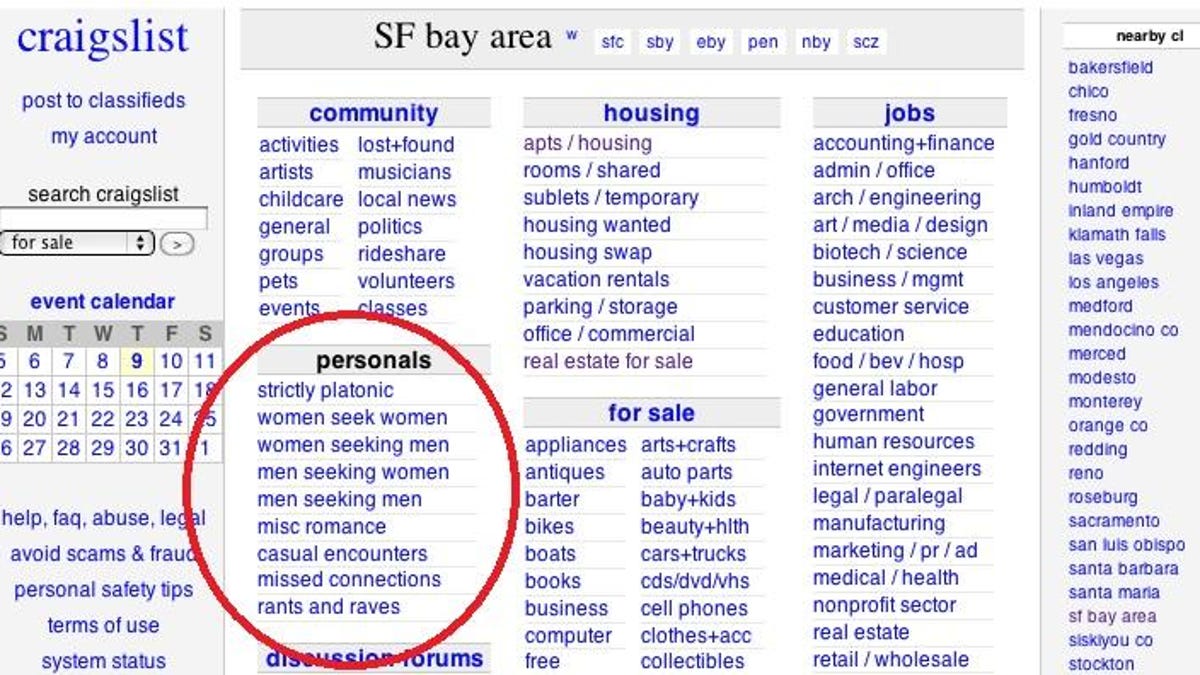Craigslist axes personal ads after sex trafficking bill passes
Legislation is intended is to curb online sex trafficking by holding website operators more accountable for their users' activities.

This popular section on Craigslist just went away after Congress approved controversial legislation to curb online sex trafficking.
The popular online classified ads site Craigslist has stopped publishing personal ads after the Senate approved a controversial sex trafficking bill that makes website operators more accountable for their users' activities.
Craigslist's personal ads have for decades been a popular way for people to make romantic connections, but with the Senate's approval Wednesday of the Allow States and Victims to Fight Online Sex Trafficking Act (FOSTA), Craigslist said it couldn't afford risking its operations by running personal ads.
"Any tool or service can be misused," Craigslist said in a statement. "We can't take such risk without jeopardizing all our other services, so we are regretfully taking craigslist personals offline. Hopefully we can bring them back some day."
The legislation -- approved by both branches of Congress -- amends Section 230 of the Communications Decency Act from 1996, which many online platforms saw as a vital protection from liability for content posted by their users. The legislation makes it a crime to operate an internet platform with the intent of promoting prostitution.
Supporters say the legislation will help curb the growing epidemic of online sex trafficking that often involves children, while opponents argue it could expose tech companies to costly lawsuits and infringe on free speech.
The bills arose to combat online sex trafficking often perpetuated though sites like Backpage.com, which has classified advertising where people can solicit prostitutes. Many of the people on this website are trafficked women and children, according to the National Center on Sexual Exploitation.
The digital rights group Electronic Frontier Foundation opposed the bill, saying it would make sites responsible for their users' speech and behavior in addition to their own.
"Facing the threat of extreme criminal and civil penalties, web platforms large and small would have little choice but to silence legitimate voices," the EFF warned last month. "Platforms would have to take extreme measures to remove a wide range of postings, especially those related to sex."
The bill requires the signature of President Donald Trump before it becomes law.
Security: Stay up-to-date on the latest in breaches, hacks, fixes and all those cybersecurity issues that keep you up at night.
Blockchain Decoded: CNET looks at the tech powering bitcoin -- and soon, too, a myriad services that will change your life.

